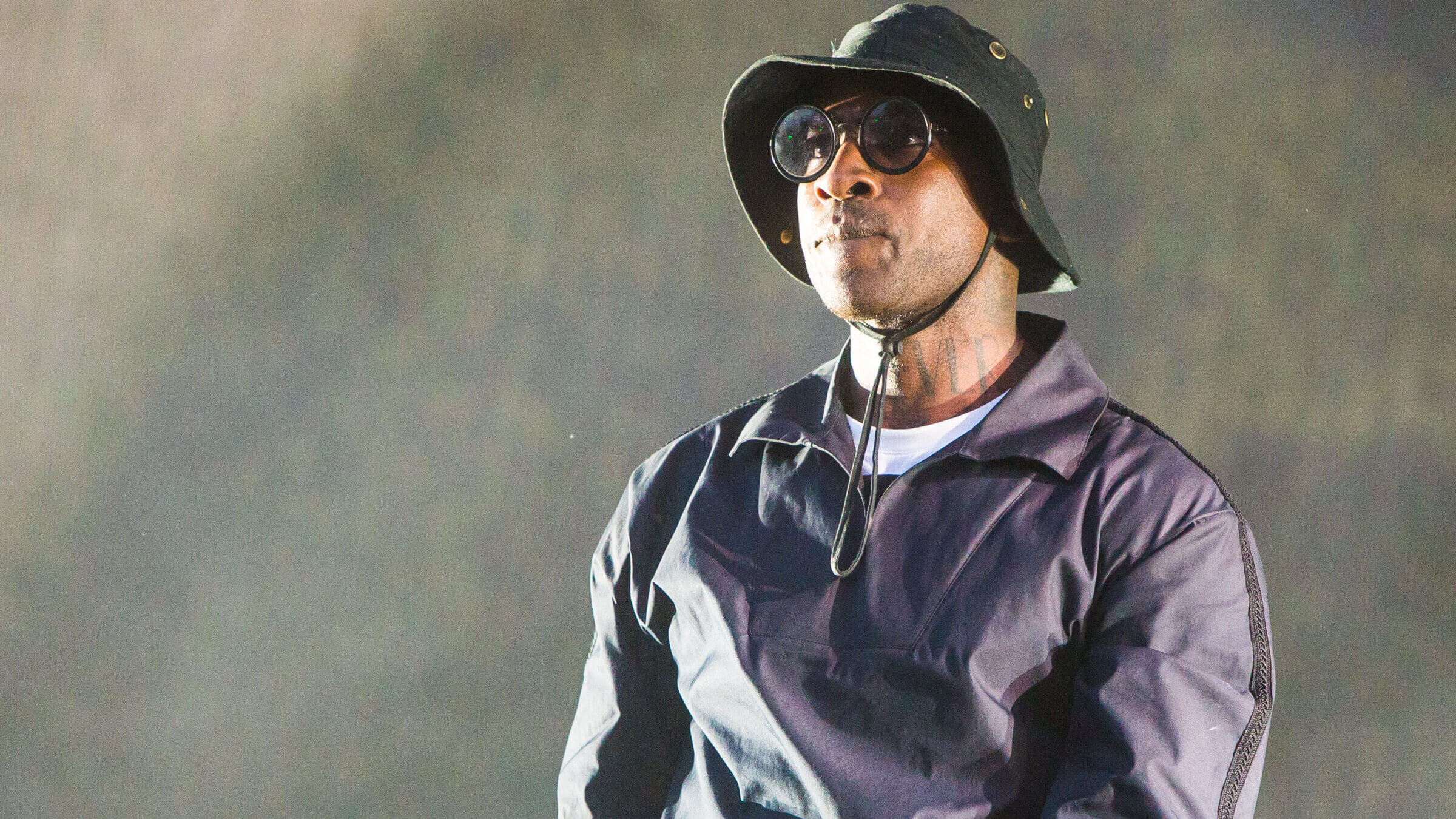‘I vow to be more mindful going forward:’ UK rap star Skepta apologizes for artwork seen as referencing Holocaust
The now-deleted tease for his new single, ‘Gas Me Up,’ featured the song’s title tattooed on one of several pale shaved heads.

Skepta performs at Wireless Festival Day 2 at Finsbury Park on July 8, 2017 in London, England. Photo by Lorne Thomson/Getty Images
UK rap star Skepta has apologized for album artwork that some said evoked the Holocaust.
The cover for his latest single, which he posted on Instagram, featured a photo of the backs of several shaved heads. One of them was tattooed with the single’s title, “Gas Me Up.”
To “gas someone up” is slang for “to encourage” them. But many commentators saw the phrase and its placement on a shaved head as an echo of the Holocaust, when Nazis shaved the heads and sometimes tattooed the skin of Jews, Romani, LGBTQ people and others in concentration camps, and murdered millions in gas chambers. Skepta has since taken down the post.
“It has been taken offensively by many and I can promise you that was definitely not our plan so I have removed it and I vow to be more mindful going forward,” he wrote on X.
In the tweet, he offered context for what he claims was a misunderstanding, writing that his upcoming album, Knife and Fork, is “about my parents coming to the UK in the 80’s, skinhead, football culture.”
Knife and Fork will be the first studio album in five years for Skepta. Since the 2000’s, the North London MC has been a key player in the UK’s Grime genre, a style of music similar to hip-hop in which MCs rap over fast-paced beats rooted in the UK and Caribbean. In recent years, Skepta has helped spread the previously underground Grime scene across the UK and the globe, earning the UK’s coveted Mercury Prize for best album and performing with the likes of Drake, Pharrell, and A$AP Rocky.
After his initial tweet, Skepta posted a collage of images that included photos of Black and White children with 80s-era attire, shaved heads, and tattoos playing soccer, singing, scowling and holding up “peace” signs at the camera, along with a decal for Two Tone Records, an independent punk and ska record label founded in 1979.
Skepta’s references to “skinheads” are sure to raise more eyebrows. But skinhead culture emerged in the 60s in London — Skepta’s hometown — as a multiracial youth movement rooted in working-class pride and reggae music. It later overlapped with punk culture and “hooligan” soccer fan culture, and split into various subgroups. Some, like the neo-Nazis who are now globally associated with skinheads, were indeed White supremacists. But others like Jerry Dammers, the punk rocker who helped found the multiracial Two Tone Records, sought to fight bigotry and bring together White Brits and people of color.
“I can honestly see how my single artwork without context can be deemed offensive, especially in a time like this but again that was not my intention,” Skepta wrote in his photog collage post. “But after some thought I don’t feel like I could continue being the artist you all know and love if my art is policed, I have to quit if I can’t express my art as I see it.”






















